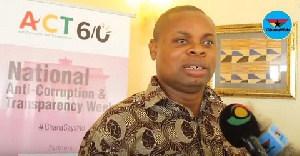 Franklin Cudjoe, President of policy think tank, IMANI Ghana
Franklin Cudjoe, President of policy think tank, IMANI Ghana
President of Think Tank, IMANI Africa, Franklin Cudjoe has alleged that government cannot locate documents covering the $178 million Kelni GVG contract.
According to Mr. Cudjoe, in a response to a request for documents covering the controversial deal, the Communications Ministry said “Please we have been ‘searching’ for the documents since we received your letter dated May 31, 2018. When we find them, we will send them to you.”
IMANI Africa has been championing for the cancellation of the Kelni GVG deal which is in line with the Communication Service Tax (Amendment) Act, 2013, Act 864.
Government was last week sued to halt the implementation of the controversial deal aimed at real time traffic monitoring and stopping SIM box fraud.
Two Citizens Sara Asafu-Adjaye and Maximus Amertogoh want the respondents – the Minister of Communication, the National Communication Authority, the Ghana Revenue Authority, the Attorney General and the Ghana Chamber of Telecommunications including the telecommunications networks – to cease any action on the Common Platform until the case is determined.
They are praying the court for “an order of interlocutory injunction restraining the respondents, whether, by themselves, their servants, workmen, hirelings, agents, privies or any persons claiming under or through them, whosoever described from implementing and operationalizing the Common Platform until the final determination of this suit.”
The applicants believe the “intended implementation of the Common Platform Constitutes a real threat to the enjoyment of their fundamental human rights to privacy and for which reason on 8th June 2018, applicants commence an action against the respondents for the reliefs endorsed therein.”
They added: “Instead of connecting to only the billing node as stipulated in Act 864, the connections will be made to all the physical network nodes.”
They argued that the connection is “in breach of Act 864 and ultimately the applicant’s fundamental human right to privacy of their correspondence and communication as protected by article 18(2) of the constitution.”